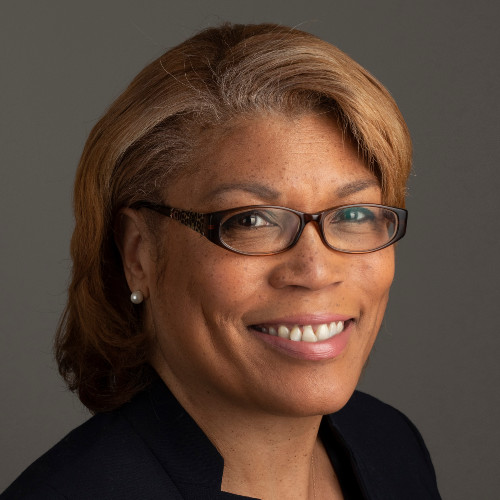By Evan J. Cutts
Boston, MA — As Diversity and Inclusion Strategist at Beth Israel Deaconess Medical Center (BIDMC), Kim Dukes understands that truly successful D&I initiatives “focus on people” before the bottom line. Over the last twenty-five years, Kim Dukes has mastered the “art of inclusion” and used her expertise to prepare organizations and recruiters alike to “take a check-up from the neck up” when it comes to attracting and retaining diverse talent. Kim is a member of the Society for Human Resources Management (SHRM), Northeast Human Resources Association (NEHRA) Diversity Advisory Committee, and co-founder of DSP Executive Search, a veteran-owned diversity search firm that helps organizations address their talent pool gaps and assists them in building, recruiting, and hiring balanced workforces. Joining the BIDMC team in January of this year, Kim Dukes draws upon a wealth of wisdom and experience to usher in the next chapter of D&I strategy at BIDMC.
Color Magazine: Can you tell me more about your role as Diversity & Inclusion Talent Strategist at BIDMC?
Kim Dukes: My role is a newly-created one within the organization; I function as a diversity recruitment trainer and internal consultant to the medical center. My role is designed to focus on our processes and remove any [implicit] biases that could impact our ability to attract top talent.
CM: What are some of the rewards and challenges of your role?
KD: The main challenge stems from working within a large organization with a lot of moving parts. That said, BIDMC is very receptive of my role and it is rewarding to work with an organization committed to ensuring people feel as if they belong.
CM: Can you tell us about your journey into the D&I field? Were you motivated or inspired by a particular event or individual?
KD: My journey began totally by accident, really. I have a strong operations background and received the opportunity to work as a human resources manager. While in the role, I fell in love with recruiting. When it was time to make my next career move, I decided to take a branch operations manager role with a staffing company. During my tenure at the staffing company, I noticed there was a disproportionate amount of people who looked like me that weren’t being chosen. It wasn’t that they weren’t qualified, they were just not being chosen. I took an interest in Diversity and Inclusion at that point in my career and haven’t left it since.
CM: When it comes to inclusive recruitment, how do you define success within your organization?
KD: That’s a really great question. At BIDMC, we operate on the same principles of inclusion today as in years’ past: that everyone, regardless of who you are and where you come from, should be able to access extraordinary care. In order for us to fully deliver on that mission, you need to realize that there is a cultural component at a play that cannot be ignored if you want inclusivity. It has to be intentional. We are committed to seeing the world through the eyes of our patients. We can only define success by doing exactly that.
CM: In today’s workforce, transgender, gender-nonconforming, and workers with disabilities still find themselves on the margins of inclusive strategies. How can organizations widen their scope in terms of D&I to be more inclusive?
KD: Organizations must be willing to “take a check-up from the neck up” and educate leaders on the business implications of hiring the best talent, no matter what package that talent comes in. Bias is real, and it sneaks into the hiring process if we’re not careful to call it out and have difficult conversations when necessary. Talent is talent and we want the best people, period.
CM: As an expert in “The Art of Inclusion,” what insights can you offer other D&I talent strategists paving their way in the field?
KD: First of all, I’m no expert—this is an everchanging journey. I’ve learned so many lessons about people and myself on this inclusion journey. I think one of the most impactful lessons for me has been adjusting my thinking from the urgency of now to spending more time and effort focused on the long term. Bias can be institutional, you have to break down and rebuild those processes with a different lens. Don’t focus on numbers, focus on sustainability, focus on the business impact, focus on people.
CM: Lastly, what advice would you give the professionals of color aspiring to executive roles within their careers?
KD: Don’t apply to jobs just because you “can do it”, you’ll never win when competing against people who “have done it”. Choose carefully, work hard, and don’t be afraid to ask for help. Most importantly, take nothing for granted—be authentic and kind to others.



